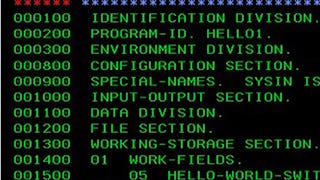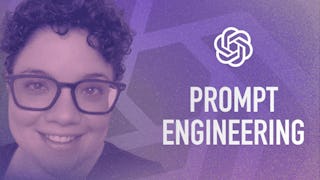Pseudocode
Filter by
SubjectRequired *
LanguageRequired *
The language used throughout the course, in both instruction and assessments.
Learning ProductRequired *
LevelRequired *
DurationRequired *
SubtitlesRequired *
EducatorRequired *
Results for "pseudocode"
 Status: Free TrialFree TrialM
Status: Free TrialFree TrialMMicrosoft
Skills you'll gain: Front-End Web Development, Debugging, Programming Principles, Computational Thinking, GitHub, Pseudocode, Version Control, Git (Version Control System), Integrated Development Environments, Microsoft Copilot, Algorithms, Program Development, Computer Programming, Web Development, C# (Programming Language), Software Engineering, Data Structures
4.8·Rating, 4.8 out of 5 stars42 reviewsBeginner · Course · 1 - 3 Months
 Status: Free TrialFree TrialD
Status: Free TrialFree TrialDDuke University
Skills you'll gain: Debugging, Software Testing, Program Development, Pseudocode, Simulations, Computer Programming, Algorithms, Development Environment, C (Programming Language), Command-Line Interface
4.3·Rating, 4.3 out of 5 stars817 reviewsBeginner · Course · 1 - 4 Weeks
 Status: Free TrialFree Trial
Status: Free TrialFree TrialSkills you'll gain: Software Development Life Cycle, z/OS, COBOL (Programming Language), Unit Testing, Systems Analysis, Systems Development, Pseudocode, Software Development Methodologies, Agile Methodology, Software Development, Software Design, Systems Architecture, Mainframe Computing, Programming Principles, Scrum (Software Development), Test Planning
4.2·Rating, 4.2 out of 5 stars57 reviewsBeginner · Course · 1 - 3 Months
 Status: Free TrialFree Trial
Status: Free TrialFree TrialSkills you'll gain: Prompt Engineering, Debugging, ChatGPT, Pseudocode, Web Development, Web Development Tools, Artificial Intelligence, Application Development, Software Development, Programming Principles, Software Engineering
4.3·Rating, 4.3 out of 5 stars28 reviewsIntermediate · Course · 1 - 4 Weeks

Skills you'll gain: Graph Theory, Javascript, Pseudocode, Programming Principles, Computer Science, Performance Tuning
Intermediate · Course · 1 - 3 Months
 Status: NewNewStatus: PreviewPreviewN
Status: NewNewStatus: PreviewPreviewNNortheastern University
Skills you'll gain: Algorithms, Bayesian Statistics, Theoretical Computer Science, Pseudocode, Computational Thinking, Data Structures, Graph Theory, Network Analysis, Probability, Probability & Statistics
Mixed · Course · 1 - 3 Months